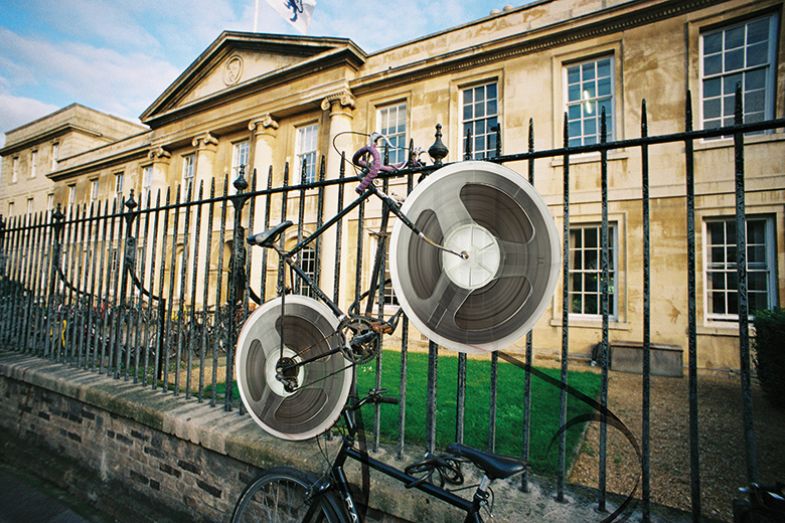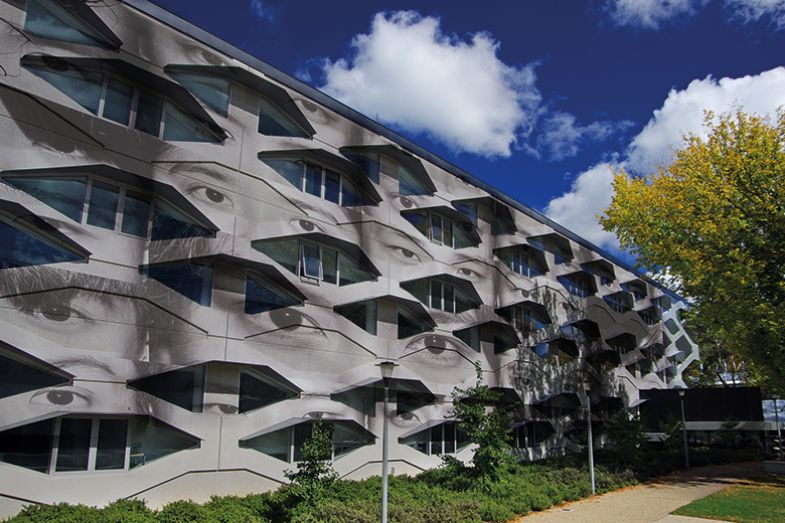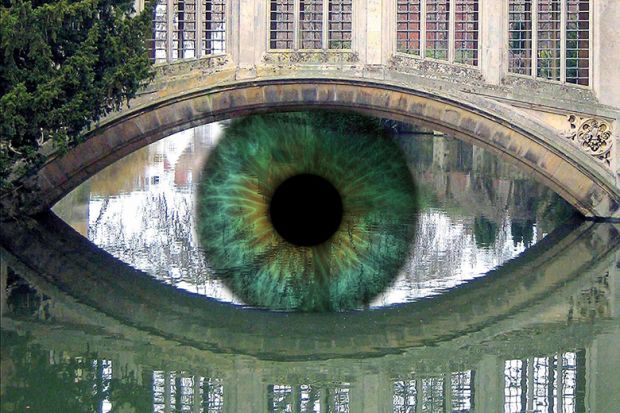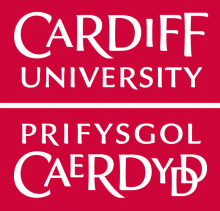McGeorge Bundy, national security adviser to US presidents Kennedy and Johnson, once described the Office of Strategic Services – the wartime predecessor of the CIA – as “half cops and robbers and half faculty meeting”. Espionage and the academy have been tightly intertwined ever since.
Take the recent case of Joseph Mifsud. The Maltese academic was employed as a professorial teaching fellow by the University of Stirling, which apparently valued his access to the leaders of former Soviet bloc nations, including Vladimir Putin. Stirling’s senior deputy principal once tweeted a photograph of Mifsud alongside Sir George Reid, a former Scottish politician and now also a Stirling employee, describing the pair as “our diplomacy A-team”. But the university found itself facing a public relations storm last year when allegations emerged that Mifsud had been the go-between who set up a meeting between Donald Trump’s election team and Russian officials offering “dirt” on Hillary Clinton. Questions have also been raised about the precise nature of Mifsud’s London Academy of Diplomacy, with one commentator suggesting that it might have been the kind of “front organisation an espionage agency would establish”.
At the other end of the scale, it seems natural, at least in the UK, for Sir Richard Dearlove to go straight from a role running the Secret Intelligence Service (MI6) to becoming master of Pembroke College, Cambridge. That cosiness between academia and espionage is also reflected in fiction. George Smiley, John le Carré’s master spy, has been an Oxford don and very much retains the persona of one. At the start of Smiley’s People (1979), we find him (briefly) in retirement, but “at his habitual desk in the London Library…composing a monograph on the [German 17th-century] bard Opitz”.
There are a number of reasons for such links. One is that the security services inevitably turn to the academy for expertise in areas such as languages and technology. Another is that the likes of anthropologists and archaeologists often travel in foreign countries and speak to local people far more freely than diplomats or journalists can, so it is not unusual for them to be tapped for information – or volunteer it themselves.
In addition, “universities offer one way for intelligence agencies to contact trained or promising new recruits”, says John Ferris, professor of history at the University of Calgary in Canada, and the official historian of the UK’s listening centre, GCHQ. “Modern sigint [signals intelligence] agencies, for example, offer employment that significantly shapes the market for university-trained linguists or quantum mathematicians, and, thus, the hiring of faculty in academic institutions.” In the US, the intelligence community even runs its own higher education institution, the National Intelligence University, now based on its own campus in Maryland.
In a striking recent book titled Spy School: How the CIA, the FBI, and Foreign Intelligence Agencies Secretly Exploit America’s Universities, the US journalist Daniel Golden argues that both foreign and domestic intelligence services are “penetrating higher education more deeply than ever…despite the tension between its open global values and the nationalistic, covert culture of espionage”. After an initial period of “chumminess in the 1940s and 1950s”, universities adopted an attitude of “animosity [to the security services] during the Vietnam War and civil rights eras”. But they have moved “back to cooperation” since the events of 11 September 2001, according to Golden.
Spy School includes a vivid story of “a Chinese graduate student [who] poaches Pentagon-funded invisibility research from a Duke University lab – and then is staked [funded] by the Chinese government to launch a competing venture in Shenzhen that makes him a billionaire”. It also features conferences organised by the CIA solely to “lure Iranian nuclear scientists out of their homeland and into an accessible setting where its intelligence officers could approach them one-on-one and press them to defect”.

Golden is unconvinced about the value of using academics as spies, however: “Accustomed to their low-risk tenured positions, where about the worst thing that can happen is being snubbed at a cocktail party, they don’t adjust well to the high-stakes world of espionage,” he writes. One case in point is the civil engineer who was asked in an email from an unspecified “foreigner” about “how to build an underground concrete structure that could withstand a megaton explosion”. He only thought to check with the university president just before he was about to respond.
However, academics certainly have maintained links with the security services – and not necessarily those of their own nations – and have acted as recruiting sergeants for them. The art historian Anthony Blunt, for instance, is alleged to have recruited a number of members of the infamous “Cambridge Five” spy ring while working at the university in the 1930s, convincing them to leak secrets to the Soviet spy agency, the NKVD.
Meanwhile, at the end of last month, Bulgarian state investigators claimed that the renowned Bulgarian philosopher, literary critic and psychoanalyst Julia Kristeva worked as an agent for the country’s security service while studying and working in French academia.
“When I was an undergraduate 50 years ago in Oxford,” recalls Anthony Glees, director of the Centre for Security and Intelligence Studies at the University of Buckingham, “recruitment [to the British security agencies] was a kind of tap on the shoulder by tutors who were known to be close to the secret agencies.”
On one level, times have clearly moved on, with recruitment becoming much less covert and elitist. In Canada, reports David Wheeler, former vice-chancellor of Cape Breton University in Nova Scotia, “everything is above board – or at least pretends/aspires to be!” Although the Canada Security Intelligence Service “occasionally comes on to campuses to check on students for security reasons”, they also hold regular work experience and recruitment events with college and university partners, and use Twitter and YouTube to reach potential recruits.
The same appears to be true in the UK. “I know from talking to somebody from GCHQ recently that they are putting a lot of effort into widening the net to include people from as diverse a range of backgrounds as possible,” says Colin Riordan, vice-chancellor of Cardiff University, “not just in terms of ethnicity but also sexuality and gender.” He notes that MI5 (the UK’s domestic intelligence agency) now ranks 49th and GCHQ equal 54th in the 2018 Stonewall list of top 100 employers that have “done great work over the past year to help achieve acceptance without exception for all LGBT people”.
Yet this is hardly the whole story.
Liam Gearon, associate professor of education at the University of Oxford, recently convened a major colloquium on universities, security and intelligence. Despite the new stress on openness, he is emphatic that “there is a lot more going on in British universities today than many realise – a lot of it covert”.
As Glees points out, there are some fairly obvious reasons why the security services do not rely solely on advertisements in newspapers and recruitment fairs. If MI6, the UK agency focused on overseas operations, starts asking for proficiency in German, it might be seen as “a sign we will be spying on each other post-Brexit”. Similarly, agencies might be reluctant to openly seek “an expert in a language or culture of Arab North Africa…Instead, you’d expect someone to be identified in a university who has this expertise – and [then to be asked] if they have a doctoral student”.
For some such skills, the obvious place to look in the UK is Soas, University of London, formerly known as the School of Oriental and African Studies. “We have had security services at recruitment fairs, particularly around the language specialism here,” confirms Peter Baran, general manager of Soas’ students’ union. But there are also “numerous rumours of people being tapped up in other ways informally, and I am aware of ex-students who do work for [the security] services”, Baran says. In fact, this choice of employment had become something of a cliché, with the satirical union anthem reassuring impoverished students that “if it’s getting desperate we’ll just work for MI5”.

Part of the appeal of spy novels is that they take us into a world where nothing is as it seems and nobody can be trusted. It can be similarly disconcerting to try to work out what is going on in the real world. University leaders may or may not know what domestic and foreign intelligence agencies are doing on their campuses, but are obviously wary of discussing the issue with journalists (although some imply that they would have lots to say, if only they could). Security services issue warnings, seek public support and justify otherwise unpalatable activities on the basis of “if only you knew what we know”. Outsiders can sometimes fall back on paranoia, conspiracy theories, speculation based on spy films or memories of the Cold War.
Take the widespread anxieties, in the US and particularly Australia, about Chinese students supposedly employed by their home security agencies to keep an eye on their fellow nationals.
Clive Hamilton, professor of public ethics in Australia’s Charles Sturt University, recently published a book called Silent Invasion: China’s Influence in Australia. Among other forms of infiltration, he suggests that “the Chinese state has penetrated deeply into our universities. Monitoring the actions and speech of Chinese students on Australian campuses, of whom there are very large numbers, is standard operating procedure by the Chinese embassy and consulates”.
In response, Hamilton urges Australian universities to “take off their blinkers”, to stop being “mesmerised by the rivers of Chinese gold flowing into their coffers” and to stand up for “the founding principles of the Western university”. More particularly, they should “dissolve all of the Chinese students’ and scholars’ associations on campuses”, since these are a means of “exercis[ing] control over students” and are “funded by a foreign power, undemocratic and secretive: everything a student society should not be”.
In the US, congressional hearings on “The Long Arm of China” have recently addressed similar themes. And Perry Link, chancellorial chair for innovation in teaching across disciplines at the University of California, Riverside, believes that there is good evidence for “students ‘spying’ on other students”, noting that “in China, certain students are charged with observing their classmates and reporting what they say. This system has now travelled outside China, where the restrictions on speaking of ‘sensitive’ things are even tighter because of the added need to ‘show a good face for the motherland’. Even if no one in a certain class or group has been deputed to report to the consulate, the problem is that no one knows who a reporter might be, and therefore [students] play it safe by saying nothing about sensitive questions except among very close friends.”
Jeffrey Henderson, professor of international development at the University of Bristol, was involved in a student-organised conference about Hong Kong at Durham University, at which the Chinese embassy apparently warned speakers not to say anything negative about China’s relationship with the territory. He suspects that the Chinese student associations are “in a regular reporting relationship with the embassy…Additionally, it’s possible that surveillance of Chinese students does take place.”
Nonetheless, Henderson cautions against “tak[ing] our understandings (and myths) about how the USSR operated and project[ing] these on to the operations of the Chinese government in relation to its students. Bear in mind that the majority of Chinese students in Britain study the social sciences. Given that these are the subjects where ‘ideological pollution’ (in Communist Party of China parlance) is most likely, why would the [Chinese] government let them study, for instance, politics and international relations, if they were concerned about problems when they returned home?”
Fran Martin, associate professor and reader in cultural studies at the University of Melbourne, takes an even more sceptical line.
After carrying out in-depth research with Chinese students in Australia, her conclusion is that “claims that they are acting as Communist Party of China spies do not stack up. I am yet to see any persuasive evidence for the claims that are being made [and I find them] difficult to believe – as do the many Chinese students I have spoken with on the issue”.
She dismisses the idea that Chinese students would be commissioned to “report back to the Party” as far-fetched. “Report back to which arm of the party, specifically? For what purpose? Why would the party expend such massive resources to track the personal opinions of private fee-paying undergraduates in universities overseas?”
Although “open to being proven wrong” and admitting that things may be “happening behind the scenes that we simply don’t know about”, Martin speculates that the circulation of these “spy stories” is largely a response to “a shift in the axis of world power that leaves Australia feeling anxious…China is set to be the world’s next superpower; the era of US domination appears to be ending, hastened by Trump. In this context, Australia – which has long tied its allegiance and fortunes closely to those of the US, but is geographically located in or near Asia – is in a situation where it must re-evaluate its position.”
What this has reactivated, in Martin’s view, is “a historically entrenched Cold-War fear of communist advances from the nation’s north”.

If the jury is still out on “students as spies”, it seems to be widely accepted that foreign governments and security agencies try to access data stored in universities’ IT systems.
At the end of March, for instance, the US imposed sanctions on an Iranian company and nine individuals for what the Department of Justice called a “massive and brazen cyberassault”, allegedly state-sponsored, that resulted in the theft of 31 terabytes of “valuable intellectual property and data” from 320 universities around the world. Nearly 150 of the universities were in the US, with others in more than 20 Western countries, including the UK, Australia, Canada, Germany, China and Japan.
The hackers sent tailored “phishing” emails to about 100,000 academics that appeared to come from other academics interested in their work. The emails contained apparent links to other research that actually took users to malicious websites resembling the academic’s login page, allowing the hackers to steal their login details. Around 8,000 academics fell for the scam over a period of years, according to the department.
One leading figure in the Australian sector – who also has “no doubt” that Chinese students are deputed to spy on each other in Australia – reports that the director of the Australian Security Intelligence Organisation “has briefed vice-chancellors at national Universities Australia meetings, and has been active in warning universities of cyber threats to sensitive research intellectual property…originating in North Korea, China and certain other countries”.
British intelligence agencies appear to have similar concerns, and see it as the security area in which it is most important for universities to be proactive.
While Sir Eric Thomas, former vice-chancellor of the University of Bristol, was president of Universities UK from 2011 to 2013, it was decided to set up an equivalent to the US National Security Higher Education Advisory Board to regularly bring together representatives of UUK and some senior members of the security services to discuss matters of mutual concern. He describes, in general terms, some of the things that came up for debate.
“What really occupied the media at the time was that people were being radicalised on campus,” he says. “While the security services saw this as important, it was not their most important issue with universities. They were pleased that universities were developing procedures for recognising if an individual was becoming radicalised but had concluded that very few students are radicalised on campus because universities are quite open places and radicalisation tends to happen in less open settings. Most of the time, the security services knew the people anyway.”
Something similar applied to international students who acted as agents of a foreign power. The security services said: “We know these people; we don’t need you to tell us who they are”, according to Thomas. “They did not want vice-chancellors, self-evidently amateurs in this area, disrupting their surveillance by bringing in additional interventions on campus when they were already aware which students might be there not just as students.”
Yet if the security services largely had these two areas under control, Thomas goes on, “what really exercised them was the theft of sensitive or commercially valuable intellectual data and technology”. So they were very interested in “how we ensured its security. They asked if we were preparing our academics for encounters that might happen overseas at a conference. For example, you go to the bar for an evening drink with colleagues and a young man or woman comes along saying they want to be a PhD student in your lab. They have read all your publications but wonder what you are currently doing. You have a relaxed conversation with an intellectually engaged person: you tell them about all your current, unpublished research – and you never see them again.”
Along with “expecting major attacks on their information infrastructure”, Thomas thinks that it is also important for universities to warn students studying abroad to beware of “personal relationships that the security forces there could use to their advantage”. And, in certain countries, academics should “never believe that a hotel room safe is safe. Take a clean laptop, don’t take your data, don’t put your data on USBs, because someone can download it.” Similarly, when external visitors whom you do not know well arrive in your lab, “put your data away in drawers and turn off your computers”.
Shortly after he took the top job at Bristol in 2001, Thomas “went down to the computer centre and saw the endless attempts to get into our system – 70 a minute”. Some of this was just hackers, but what MI5 and MI6 made clear to him was that foreign agencies were also often involved.
“We have become much more aware of the necessity to protect the integrity of our own infrastructure in the past 10-12 years,” he says. “You have to assume a university information system will be under attack. This area was seen by the security services as the one where universities really had to get serious.”
The seminar room may seem a long way from the world of dirty tricks and “cops and robbers”. Yet universities need to become ever more mindful of the ways that they are, in reality, in the crosshairs of all manner of shadowy entities.
Spooks and scholars: should academics collaborate with intelligence agencies?
Are the security services dangerously out of control or an important tool for preserving our freedoms, which academics should be willing and perhaps even proud to help?
Different scholars have very different views.
Anthony Glees, director of the Centre for Security and Intelligence Studies at the University of Buckingham, has known academics who have “agreed to entertain a visitor from abroad”, to whom MI6 was keen to “get nearer” in order to “turn” them. “I think it’s a very good idea,” he says. “It has to be part of academic freedom that an academic can decide if they want to do that, but it is absolutely inappropriate to disclose it to the vice-chancellor.”
It would also be quite acceptable, in Glees’ view, for an academic to facilitate a secret meeting between the security services and, for example, “a student who came from a country with an odious regime and who really wanted to come and live in the UK permanently, or who wanted to overthrow the odious regime…Such a person would, I would guess, be the kind of person MI6 might be interested in”.
Many academics, Glees goes on, get “rung up by [a friend] who says: ‘I’ve got an interesting research post, do you have a good student who might be interested?’” They tend not to respond: “I could not possibly recommend anyone: it would be unethical. Please advertise the post.”
So “why should it be OK to help a friend” in this way, Glees asks, “but not help one’s own country” by responding helpfully when the security services ask to be put in contact with students with the particular kinds of expertise that they seek?
However, Tom Leinster, reader in mathematics at the University of Edinburgh, says that “the vast majority of mathematicians are highly sceptical of the secret intelligence agencies”. And, personally, he sees them as “effectively outside democratic control” and happy to use “the fear of Islamic terrorism…in order to shape policy and, in particular, as an excuse for secret government agencies to claim ever more power over citizens”.
Ever since the “industrial scale” of surveillance undertaken by Western security services was made public by Edward Snowden, Leinster believes that GCHQ “has made an energetic attempt at reputation laundering, especially within the academic community. Its academic brand, the Heilbronn Institute for Mathematical Research [co-run with the University of Bristol], has poured more and more money into funding mathematics conferences and research fellows…buying academic respectability using entirely rational marketing tactics. It funds academic activities that have nothing to do with its core mission.” (Each member of the institute, according to its website, “spends half their time pursuing research directed by [GCHQ], and the other half doing personal academic research”.)
But the agency’s ulterior motive, Leinster warns, is “to create an academic culture that doesn’t raise an eyebrow when GCHQ is mentioned in academic contexts, that doesn’t put them in the same basket as the military or arms dealers, that doesn’t pause to consider the effects of GCHQ’s actions on the world”.
POSTSCRIPT:
Print headline: Spies like us
Register to continue
Why register?
- Registration is free and only takes a moment
- Once registered, you can read 3 articles a month
- Sign up for our newsletter
Subscribe
Or subscribe for unlimited access to:
- Unlimited access to news, views, insights & reviews
- Digital editions
- Digital access to THE’s university and college rankings analysis
Already registered or a current subscriber? Login









